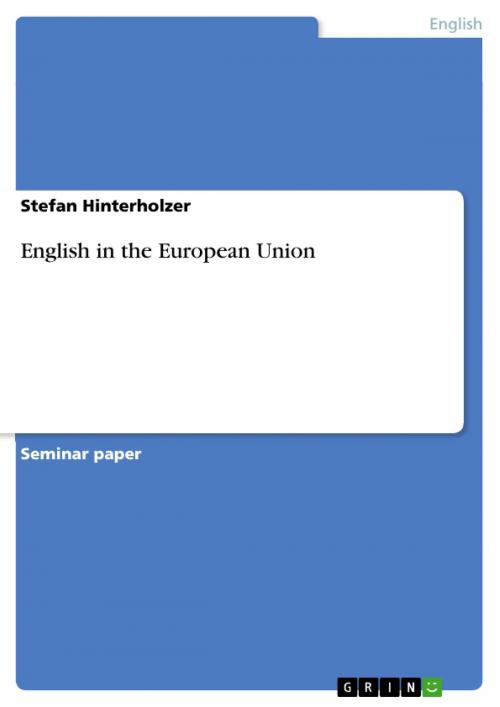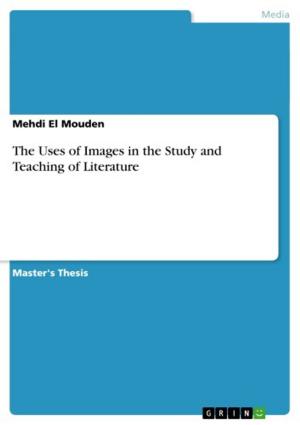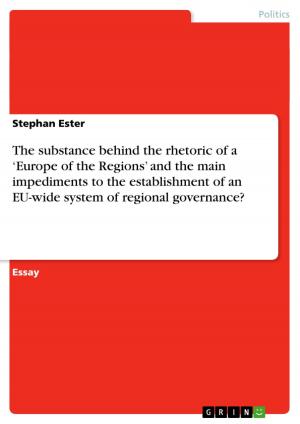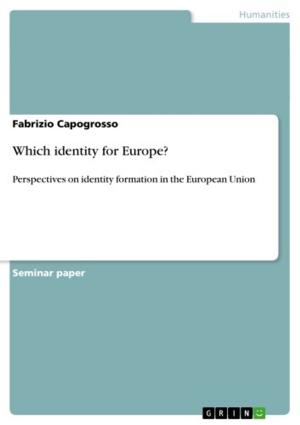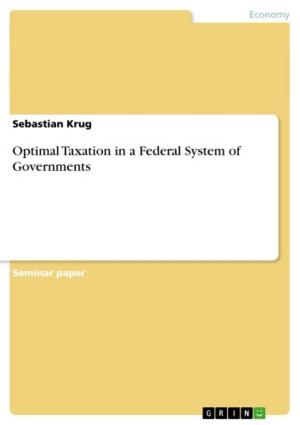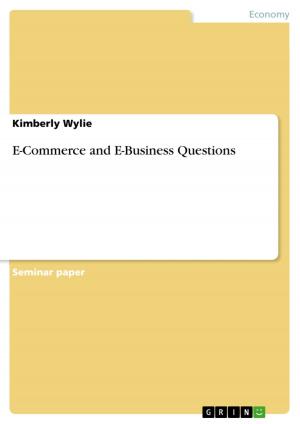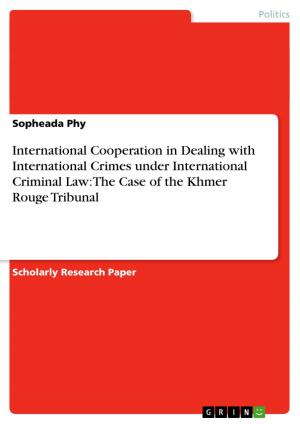| Author: | Stefan Hinterholzer | ISBN: | 9783638618120 |
| Publisher: | GRIN Publishing | Publication: | March 20, 2007 |
| Imprint: | GRIN Publishing | Language: | English |
| Author: | Stefan Hinterholzer |
| ISBN: | 9783638618120 |
| Publisher: | GRIN Publishing |
| Publication: | March 20, 2007 |
| Imprint: | GRIN Publishing |
| Language: | English |
Seminar paper from the year 2007 in the subject English Language and Literature Studies - Linguistics, grade: 1, University of Innsbruck (English Department), course: English in Europe, 14 entries in the bibliography, language: English, abstract: The European Union is not only an economic community. It is also a unique language community in which each language has its place and its right to exist. Today, English is the dominant language in the world serving as a first or second language, a working language, a lingua franca etc. for many people. Nevertheless, the position of the English language is not the same in the European Union as in a global context. This paper will focus on the position of English in the European Union being only one of 23 official languages. It will be analyzed in how far the dominance of English affects the other languages and the institutions of the European Union and to which extent English has the status of a European lingua franca. On the other hand, the influence of the other languages on English will be looked at, which will lead us to the phenomenon of 'Euro-English'. Finally, the opposition of other language communities against the dominance of English will be discussed.
Seminar paper from the year 2007 in the subject English Language and Literature Studies - Linguistics, grade: 1, University of Innsbruck (English Department), course: English in Europe, 14 entries in the bibliography, language: English, abstract: The European Union is not only an economic community. It is also a unique language community in which each language has its place and its right to exist. Today, English is the dominant language in the world serving as a first or second language, a working language, a lingua franca etc. for many people. Nevertheless, the position of the English language is not the same in the European Union as in a global context. This paper will focus on the position of English in the European Union being only one of 23 official languages. It will be analyzed in how far the dominance of English affects the other languages and the institutions of the European Union and to which extent English has the status of a European lingua franca. On the other hand, the influence of the other languages on English will be looked at, which will lead us to the phenomenon of 'Euro-English'. Finally, the opposition of other language communities against the dominance of English will be discussed.
